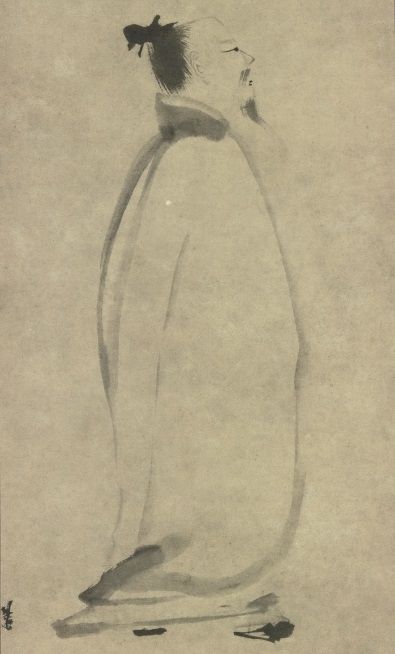 The poet Li Po, A.D. 701-762 (1919)
The poet Li Po, A.D. 701-762 (1919)
Author Waley, Arthur
Creator China Society (London, England)
Publisher London, East and West, ltd.
Date 1919Li Bai or Li Po (701-762) was a great connoisseur of alcohol and a great poet, part of the group of Chinese scholars called the "Eight Immortals of the Wine Cup" by fellow poet Du Fu.
Li Bai is often regarded, along with Du Fu, as one of the two greatest poets in China's literary history.
Approximately 1,100 of his poems remain today. The first translations in a Western language were published in 1862 by Marquis d'Hervey de Saint-Denys in his
Poésies de l'Époque des Thang.
The English-speaking world was introduced to Li Bai's works by a Herbert Allen Giles publication History of Chinese Literature (1901) and through the liberal, but poetically influential, translations of Japanese versions of his poems made by Ezra Pound.
A cup of wine, under the flowering trees;
I drink alone, for no friend is near.
Raising my cup I beckon the bright moon,
For her, with my shadow, will make three men.
The moon, alas, is no drinker of wine;
Listless, my shadow creeps about at my side.
Yet with the moon as friend and the shadow as slave
I must make merry before the Spring is spent.
To the songs I sing the moon flickers her beams;
In the dance I weave my shadow tangles and breaks.
While we were sober, three shared the fun;
Now we are drunk, each goes his way.
May we long share our odd, inanimate feast,
And meet at last on the Cloudy River of the sky.
Li Bai is best known for the extravagant imagination and striking Taoist imagery in his poetry, as well as for his great love for liquor. Just like me. Well not the Taoist bit, the alcohol bit!
Li Bai spent much of his life travelling, although in his case it was because his wealth allowed him to, rather than because his poverty forced him.
He is said to have had a poetic death drowning in the Yangtze River, having fallen from his boat while drunkenly trying to embrace the reflection of the moon.









